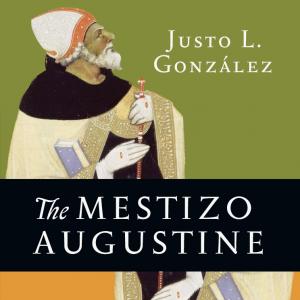
Rich Villodas is the Lead Pastor at New Life Fellowship Church. On October 6th, 2013, Rich succeeded Pete Scazzero as Lead Pastor. Rich was born and raised in the East New York section of Brooklyn, just 20 minutes from New Life. He graduated from Nyack College and then went on to complete a Masters of Divinity degree at Alliance Theological Seminary. When Rich is not reading, he is cheering on his beloved Mets, Knicks and Jets teams. Rich is married to Rosie and they have a little girl and boy, named Karis and Nathan.
Posts By This Author
Waiting on God: Genealogies and Grace
#MeToo has led to #ChurchToo. Jesus’ geneology reveals something profound about God. That God comes to the aid and identifies with people who have been sinned against. God doesn’t overlook them, God doesn’t hide their stories and God doesn’t sweep them under the rug. And it is the church’s job to do the same.
Of Two Minds
The Mestizo Augustine: A Theologian Between Two Cultures, by Justo L. González. IVP Academic.
“YOU HAVE MADE us for yourself, O Lord, and our hearts are restless until they find their rest in you.”
These oft-quoted words, delivered from pulpits, books, and classrooms through the centuries, came from the theological giant St. Augustine. Augustine is widely noted as one of the most important theologians in Western Christianity. His acclaimed works, most notably Confessions and City of God, have shaped the thinking and spirituality of pastors, scholars, and regular church-going folk.
However, even with all the pages written about Augustine, there’s been a missing element that hasn’t been significantly excavated, namely, Augustine’s mestizo makeup. This is why historical theology scholar Justo González’s new book, The Mestizo Augustine: A Theologian Between Two Cultures, is a welcome and much-needed contribution to Augustinian theology.
The central thrust of The Mestizo Augustine is the exploration of the “mestizo” nature of Augustine and his theological journey. The word “mestizo” (which flows out of Latino/a theology) is a Spanish word that captures what it means to be of mixed heritage. Being mestizo is a recognition of hybridity or, as González notes, “to belong to two realities and at the same time not to belong to either of them.” This mestizaje lens is needed to better understand Augustine.
González unpacks the African/Roman hybridity of Augustine. This hybridity manifested in language, philosophical frameworks, and traditions. For example, being mestizo, Augustine lived in two worlds as it pertained to understanding the concept and practice of authority. González notes that in African culture, authority rested in the holiness, wisdom, and charisma of a leader. In Roman culture, authority did not rest on individual character but “in the function to which that person had been assigned.” Being mestizo meant Augustine needed to wrestle with the implications of these two worlds.

